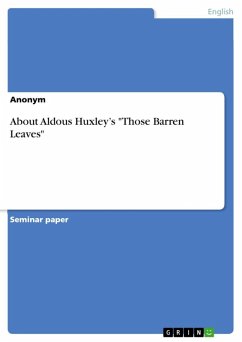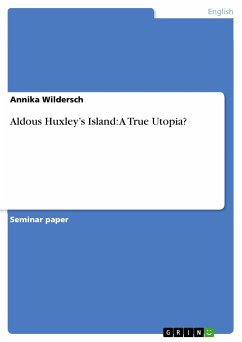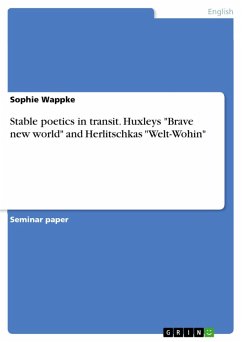Seminar paper from the year 2001 in the subject English Language and Literature Studies - Literature, grade: 1,3, Free University of Berlin, language: English, abstract: Travel is multi-faceted, and yet, in the sense of changing the place, it seems to be one of the most basic actions. In many novels, incorporating travel provides the author with the valuable chance to confront the main character with very disparate figures, environments and cultures. In this case, traveling is an action that motivates action, it is auxiliary. It motivates action by making randomness legitimate - for traveling means to subordinate oneself to unknown future events. Journeys are necessarily open and can never be planned completely, as Englishmen's accounts even of the Grand Tour, a very standardized form of travel, prove. Also other literary genres besides the travelogue, such the German Entwicklungsroman, can hardly be explained without reference to this aspect of traveling. Literary journeys often parallel outer and inner movement of the character. (Korte 10) One need not go as far as to Georg Büchner's Lenz to give proof of this; Calamy's retreat to the mountains at the end of Aldous Huxley's third novel Those Barren Leaves (1925), the central work of this paper, also tries to connect landscape and mind. Yet, traveling becomes thematic above all in the fourth of the novel's five parts. Its title "The Journey" signals it. The aim of this paper is to analyze and interprete Huxley's novel.
Dieser Download kann aus rechtlichen Gründen nur mit Rechnungsadresse in A, B, BG, CY, CZ, D, DK, EW, E, FIN, F, GR, HR, H, IRL, I, LT, L, LR, M, NL, PL, P, R, S, SLO, SK ausgeliefert werden.









